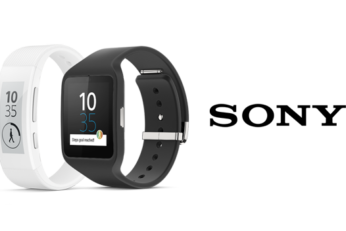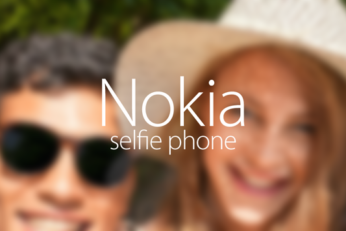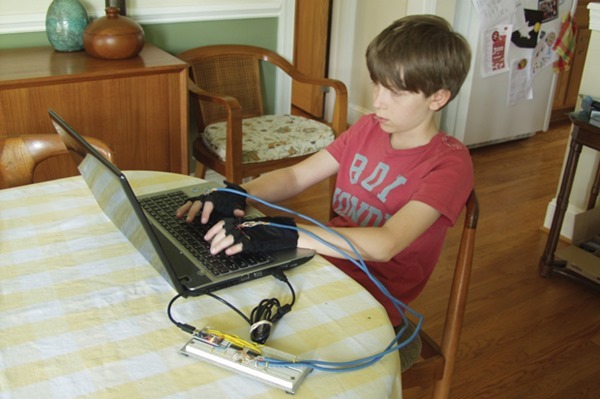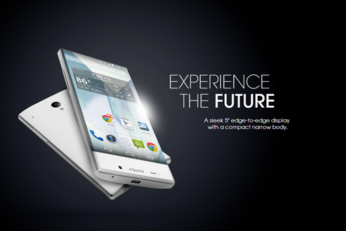As well as unleashing the Xperia Z3 and Z3 Compact alongside an intriguing assortment of QX camera attachments, Sony also took the wraps off a couple of new smartwatches earlier on today at IFA in Berlin. The SmartBand Talk will rival the likes of the Samsung Gear Fit in the battle of the fitness-focused wearables, while the SmartWatch 3 will be the PlayStation maker's very first release to run Google's Android Wear.
These next couple of weeks are going to be particularly busy in the mobile world. Along with Apple's now-confirmed iPhone 6 event on September 9th, there's the small matter of IFA in Berlin, where a number of the industry's foremost vendors will be taking the wraps off their newest products. But as we wait for Samsung's Galaxy Note 4 to hit the scene, Microsoft has already begun hyping a brand-new device of its own, and with the selfie craze still as popular as it's ever been, the Lumia 730 looks to offer fans a device capable of taking decent, front-facing snaps.
Although the smartphone world has continued to expand and improve over the past few years, it's been a while since any company sought to change the game with something new and innovative. But while prominent display maker Sharp has, for the large part in recent times, stepped back and focused on developing and producing panels, its new AQUOS Crystal series boasts a bezel-free, frameless profile that not only maximizes display real estate in proportion to form factor, but as you'll see below, is rather easy on the eye.
The touch-based environment has risen to prominence over the past few years, with many skeptics and naysayers having been won over in the process. As well as the increase in the number of smartphones, tablets and other touch-enabled gadgets sold every year, we've also seen efforts to bring gestures to our regular computers and notebooks. Some have focused on air gestures, allowing users to swipe using simple hand signals, while others, like the $75 offering seen below, have sought to turn everyday surfaces into touch panels.
Even though we're on the cusp of the iPhone 6 taking things to the next level with a svelte, 7mm-thin body and sleek profile, you don't have to think too far back to remember the times when handsets were a little more, well, bricky. But while many of us would struggle to fathom the idea of carrying around a device such as the iconic Nokia 3210 in this day and age, the world's first ever cellphone offers a true reality check on how far we've come along in just three decades. Launched back in March of 1984, the monstrosity you see before you would have set you back a cool $4,000 at the time - more than double that in today's money - but intriguingly enough, it was the ever-present figure of Motorola that brought it to the scene.
The world of wearables is currently amid something of a boom. Google is hard at work with Project Glass, and the search giant is also in the process of developing Android Wear, opening the door for a number of vendors looking to get into the smartwatch game. But while many companies seem to be following the crowd with head-mounted face computers and watches that do more than tell the time, Japanese mobile carrier Docomo has thrown together an interesting wearable SIM concept.
Panoramic, 360-degree photo and video has become increasingly popular as both the hardware and software of our mobile devices has continued to evolve, and although it's still rather difficult to perfectly capture the moment from all angles, many of us continue to enjoy the process of creating these kinds of images and clips. Now, though, a new product by the name of the CENTR Panoramic Video Camera, developed by ex-iPhone engineers, has sought to take this segment of the point-and-shoot market to the next level, having just thrown up a Kickstarter campaign for the compact, feature-rich gadget that touts a high-quality 360-degree video experience.
So, wireless charging. Plenty of smartphone makers have taken a stab at killing off the charging cable over the years, with Nokia in particular doing its best to make wireless charging into something that's less of a novelty and more of a real feature. While the likes of Apple have so far refused to bring wireless charging to iPhones and iPads, there's no doubt that there's something inherently cool about charging something just by putting it onto a plate.
The Consumer Electronics Show (CES), held annually in Las Vegas, Nevada, has always been an arena for companies to showcase their latest and greatest products. Some use it as an opportunity to introduce periodical updates to existing consumer tech, whereas others seize the chance to introduce a whole new product to what is essentially a captive technology loving audience.
Privacy will always remain a major concern among mobile device owners, and with more and more apps seemingly requiring your location in order to function properly, it can be disconcerting to consider just how readily we give offer this information up. With theories of NSA tracking smartphone owners also serving as an unnerving afterthought, it stands to reason that some might wish to take action and thanks to the Scottevest Blackout Pocket, you can apparently stop yourself from being GPS pinpointed.







